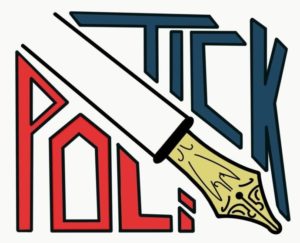Bananas, boondoggles, and bad economic policy
An explanation for why our economy is in trouble
November 2, 2021
I want you to take a moment and imagine the life of a singular banana. Fun fact: most bananas are imported into the US, about 6.4 billion pounds per year. Before you peel that banana, it has to cross the sea, hopping aboard a gigantic container ship, traveling from one port in South America to another in the US. After the ship docks, the banana patiently waits to be unloaded by one of thousands of port workers. Its waiting time is over, it is loaded onto a train or truck, where over the course of several days it is delivered to a central distribution center. From there, it is once again loaded onto a vehicle and arrives at your local store, or shop or school.
The life of a banana is fascinating. Whether you know it or not, that banana in your grasp has passed through many more hands than just your own. The life of that banana breathes life into a multi-billion dollar shipping industry, feeding thousands of workers in two separate continents.
Now I want you to imagine huge swaths of that industry missing, and instead of just bananas disappearing, it’s toilet paper and bicycles, cutlery and towels. Stop imagining: it’s here.
There are currently 157 ships waiting to dock and unload their cargo in Los Angeles, California. Extend that to the approximately. 360 ports in the United States and you end up with the supply chain crisis today. Where should we aim our ire? Perhaps towards the Biden administration.
The United States is missing a gigantic amount of people in the transportation sector. From longshoremen to truck drivers, every sector in the transit economy is missing laborers. I use the word laborer on purpose: working at a port or driving a truck for long hours is tedious and difficult, oftentimes “unskilled” work. In fewer words that means that people don’t always want to work those jobs, especially when better alternatives exist.
COVID-19 ushered in the era of something called a “UBI” or “universal basic income.” The stimulus checks sent out by the federal government had the effect of artificially increasing every person’s wage, creating a UBI. The huge amount of money pumped into the US (40% of all currency was printed in the last 12 months) had the unintended consequence of getting people used to more money in their pocket. This leads to inflation: businesses recognize that there is more money, and they increase their prices for goods. Eventually “real wages,” meaning how much you can actually buy with the money you earn, returns to the original rate. Everything just costs more than it did before.
In this case, it’s not just prices that are rising. It’s also workers’ expectation of what they deserve for their work. In relatively low paying, physically demanding jobs (like many associated with the supply chain), workers’ unions are demanding more for less. When employers are unable to provide that, port-workers leave. Shoving money into the economy is effectively what crippled it.
There are other factors which play into the supply chain crisis. Vaccine mandates scare away employees from any business, and those involved in transportation are not exempt. Americans, emerging from their Covid-haze, are purchasing goods at an extraordinarily high rate, adding stress onto an already understaffed transit-economy. To top it all off, Secretary of Transportation Pete Buttigieg took the last two months off from work for paternity leave, leaving the supply chain crisis to fester without any central policy.
Many roads lead to Rome: the supply chain crisis causing prices to rise and ports to clog cannot be boiled down to one issue.
The solution, however, can. If the federal government wants port workers to get back to their jobs, they need to do a couple things. First, they need to remove all economic stimulus packages from circulation. A UBI will only serve to increase our economic crisis and inflate prices. Second, they need to eliminate vaccine mandates; the US needs all the workers they can get, and vaccination status should be a personal choice regardless. Finally, the federal government needs to let private businesses make money. Every business will act in its own best interest. If there is a huge demand for transportation services, our free market will eventually fill that demand, and the situation will resolve itself.
It’s worth remembering that every banana you’ve ever eaten wasn’t produced by the government. It was produced by hardworking men and women seeking a profit. Trust people to work in their own best interest and the supply chain crisis will fix itself.

